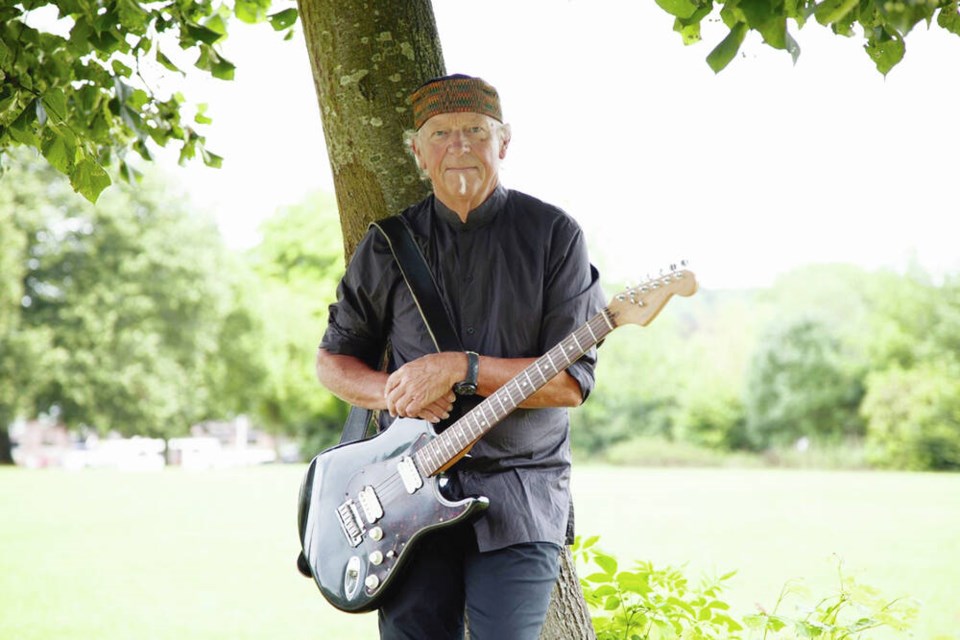MARTIN BARRE WITH CLIVE BUNKER
Where: Royal Theatre, 805 Broughton St.
When: July 21, 7:30 p.m.
Tickets: $59.50-$89.50 from the Royal McPherson box office (250-386-6121) or
Note: Barre also performs July 22 at the Tidemark Theatre (Campbell River) and July 24 at the Port Theatre (Nanaimo)
During his 43 years as the guitarist for Jethro Tull, Martin Barre played on his share of hit albums — two of which are considered among the best in rock history.
Aqualung, from 1971, and Thick as a Brick, released the following year, established the group founded in 1967 by singer Ian Anderson as one of the most commercially successful bands of the 1970s. When Anderson ended the Grammy Award-winning outfit in 2011, Barre was the longest serving member besides Anderson, who eventually reformed Jethro Tull and still leads the group today.
The 75 year-old Barre spoke with the sa╣·╝╩┤½├¢ prior to his Canadian tour with drummer Clive Bunker, another Jethro Tull original played with the group through Aqualung up until 1972’s Living in the Past. The two are on a cross-sa╣·╝╩┤½├¢ tour celebrating what would have been the 50th anniversary of Aqualung, which they will play in full and in sequence with the Martin Barre Band at the Royal Theatre tonight (July 21).
The tour also stops at the Tidemark Theatre in Campbell River tomorrow (July 22) and the Port Theatre in Nanaimo on Sunday (July 24).
Have you played Victoria before?
[Jethro] Tull played there 14 years ago. I remember, because I’m a keen runner, and we were staying on the [water]. I went running and I saw whales, and I was just so excited. I remember it so vividly, it was like a once in a lifetime experience. I’ve got a friend in Nanaimo, and we’re going to stay with him this time. I’m going to do a bit of wakeboarding and barbecuing and hopefully catch a salmon.
Is running your way of keeping your sanity on the road?
Yeah, completely. I make time for it. It’s probably the most important thing I do on the road. It’s such a big part of my routine, and the byproduct is I guess I’m a bit fitter than I would be if I didn’t do it.
On tour these days, everything is on your shoulders. It’s your name up there on the marquee. Has COVID made touring a more stressful proposition?
It hasn’t. I kept playing, I was writing — I even bought a flute started reading music again. I’m never bored. I really loved having a year off, because I hadn’t had a year off ever, since I started playing. The baggage problems at airports, cancellations — that is the stuff that makes my job 10 times harder than it should be. But it’s worth it. Luckily, we have a great time and that that fixes everything.
Talk about the 50-year anniversary of Aqualung, and how your playing has changed. For for a lot of those years, you had the ability to focus mostly on your guitar, and let someone else handle the vocals and the role of bandleader. Did you reinvent some of the songs to fit the new format?
I don’t want to place things exactly as they were. I’ve got my own take on things. So many of those Jethro Tull albums — the riffs, the chords, the musicality, the arrangements — were all centred around guitar parts, so I’m really lucky that I’m able to replicate those, and enhance them sometimes.
Ian Anderson was known for incorporating flute into Jethro Tull’s music. How do you deal with that aspect on the Aqualung songs Cross-Eyed Mary and My God?
We don’t need flute because we play the parts on guitar. I’ve got a flute in my backpack if I need one.
One of the things people will be looking forward to is your very famous guitar solo on the title track, Aqualung. There’s an oft-told story about the recording sessions in London for the album, where Led Zeppelin were working next door.
Zeppelin were the basement [of Island Studios] and we were in the big studio upstairs. Although we knew them really well, we never saw each other for at least a month. While I was doing the first and only take of the solo on Aqualung, they decided to come in the control room, to say hi, and [guitarist] Jimmy Page was at the window waving madly. But if I waved back, I was going to blow my solo. So I turned my back on Jimmy.
It makes you realize that some of the signature moments, the famous moments, in rock history are left to chance. Many who hear that solo can’t imagine you recorded it while Jimmy Page was trying to flag you down.
Ian [Anderson], God bless him, will forever regret not making that a flute solo because for many, the highlight is the guitar solo. It was just random decisions on the fly. Such things happen in life.
That seems like it’s a recurring theme in your career. As someone who has played with Paul McCartney, Phil Collins, Jimi Hendrix, Fleetwood Mac, Pink Floyd, and Led Zeppelin, is there a secret recipe?
There’s so many great bands that never make it, and there’s so many awful bands that make it huge. You can take the quality out of the equation, but there has to be little elements of circumstance and coincidence and being in the right place at the right time. I like that. It makes it a level playing field. I don’t like snobbery in any form at all — and in music, it is particularly pointless. So the fact that people can bang away, play three chords and make a great record, that’s good.



